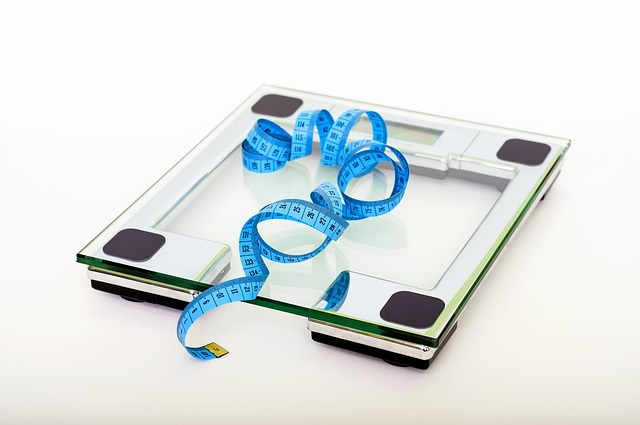It’s fascinating how often you hear women talking about their weight – and how much anxiety is associated with what the bathroom scales say.
Depending on what we’re trying to achieve, seeing extra or fewer kilos (or pounds) on the scales can prompt reactions of happiness and excitement, or frustration and disappointment.
Many people have a ‘goal weight’ and there is a massive international industry built around ‘weight loss’. Yet how often do we stop and ask ourselves what our bodyweight actually means?
The number on the scales: Put crudely, your weight is the sum total of all the bone, skin, tissues, water, fat, muscle and other stuff that makes up your body – and also includes food and drink that is somewhere along its journey through your digestive system.
But when we get on the scales, I’m guessing most of us think about the fat component – which is probably why we react negatively to weight gain.
Don’t forget that your weight can increase for a whole lot of different reasons – only some of which are due to a change in the amount of bodyfat.
Fluctuations in weight: Imagine you get on the scales and see that the number is higher than the last time you were on the scales. This might be indicative that you have gained some fat.
Then again, it may be because you have a little fluid retention (perhaps from not drinking enough water the day before, or eating salty foods). It can also be related to where you are in your menstrual cycle.
So your scale weight is actually a pretty crude measure of where you’re at! There are some other measures that you can consider using to supplement the info you get from the scales, and I’ll write more about that soon.
But first I want to highlight what one of the downsides of paying too much attention to your scale weight.
Effects on motivation: One of the negative aspects of weighing yourself too often and/or giving too much weight (excuse the pun) to the number you see is its effect on your motivation.
Say you have been eating carefully, cutting back on sugary/salty/fatty snacks and getting regular exercise for the past two weeks.
Then you jump on the scales and, to your horror, the number is actually HIGHER than it was before. Arghh! This might motivate you to exercise harder or make further changes to your diet (which could actually be counterproductive, but we’ll discuss that elsewhere).
Or you could say to yourself ‘This isn’t working – I can’t be bothered trying so hard doing things that are a waste of time and effort’, or ‘This is impossible. I can’t lose weight. Nothing I try works’.
As a result, you might go back to unhealthy eating habits and cut back on (or even abandon) physical activity – which would be really unfortunate.
Scales – just one tool in the toolkit: One thing I’ve recently learned is that tracking your weight is just one of the ways that you can track your progress (and a pretty crude one at that).
It can be really helpful to supplement weighing yourself with other measures, like measuring yourself with a tape measure, taking progress photos and even trying those body fat calipers they use in gym class at high school (but you’ll need help with them!).
Something I read about recently was the idea of ‘thermometer jeans’.
Rachel Cosgrove (author of the Female Body Breakthrough) uses this concept to give women an additional measure of progress towards their goals. When you can fit into your ‘thermometer jeans’ you feel hot! I love it!
Rachel and others advocate strength training for fat-loss for women. I know at this point many of you will be thinking “Nope, I’m not interested in lifting weights”. But please keep reading…!
‘But I don’t want to get big!’: Women who are carrying a bit of extra bodyfat often say to me that they don’t want to build muscle ‘because they want to get smaller, not bigger’.
It’s like they look at their body how it is now, and imagine their muscles kind of pushing their fat out further and making their bodies even bigger. No wonder they are scared! Fortunately, this isn’t actually what happens : )
‘Swapping’ fat for muscle: Few women seem to really appreciate what fantastic things their muscles are and the wonderful benefits they can deliver if they look after them!
Many women who get into strength training (and focus their nutrition on gaining lean muscle mass) get smaller – their body fat reduces, they become far more toned, their clothes get looser and feel a whole lot better.
(There are lots of other benefits too which we can talk about).
Their scale-weight may not go down by much, but their actual body composition changes quite dramatically. They often track their progress using a number of methods (photos, measures and/or calipers) rather than relying too heavily on what the scales say.
There are lots of GLC members who are living proof of this and who will be very happy to share their experiences.
So, anyway, there are a few of my thoughts about scales and weight and stuff. I’m certainly not advocating that women stop weighing themselves, or saying that weight is irrelevant.
I just think it’s helpful to remind yourself that scale weight is a crude measure, and that how your clothes fit and how you actually feel in your own body is vitally important. Would love to read your comments and reactions!
You can find much more information on living a holistic lifestyle in these free magazines and on our YouTube channel.
Dr Clarissa Hughes






